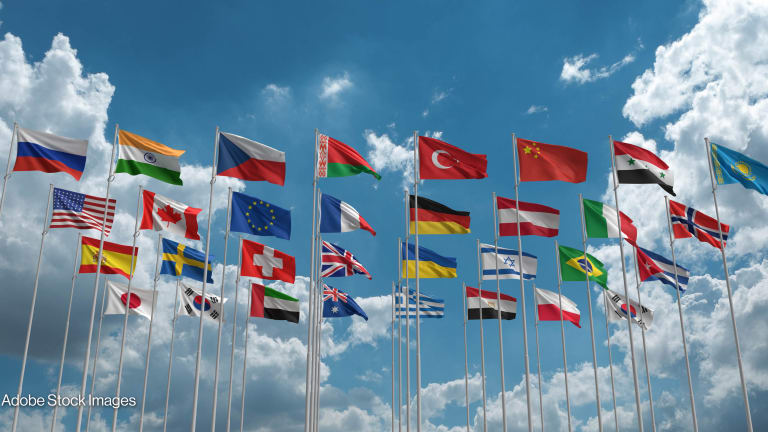Opinion: Global health is at a crossroads, emerging as a new asset class
Investors have become a driving force in global health, seeing it as the next big asset class, while global south nations are pushing back against donor-driven models.
Global health stands at a critical crossroads. The recent World Health Assembly’s call for “One World for Health” captures an important aspiration — but noble slogans won’t fix fractured systems facing rapidly changing markets and deep-rooted inequalities. The pressing question is: What concrete steps will actually drive true health equity, and who now holds the power to shape the rules? To be future-proof, global health systems need stronger coordination and smarter financing that brings together public funds, philanthropy, and private capital. The traditional model, driven by World Health Organization donor priorities and member states, and often scattered efforts, is no longer enough to handle the scale of today’s challenges. Climate shocks, pandemics, and AI-driven disease surveillance demand a unified approach, one that combines government leadership, community participation, and responsible investment. Meanwhile, global health rules are increasingly contested, as nations in the global south push back against donor-driven frameworks and advocate for greater sovereignty over things like vaccine production and health data. In the midst of this, the global investment community is leading the development of next-generation health systems. Investors are finally recognizing what public health experts have long known: Global health is both a risk vector and, increasingly, an asset class. What’s needed now is a fundamental reset that shares power, risk, and resources more fairly across the entire global health system. Health as risk and investment Pandemic-era disruptions taught sovereign wealth funds, insurers, and private equity firms that weak health systems are no longer a problem to be addressed solely through aid. They’re a market vulnerability and a systemic threat to financial stability, trade continuity, and even national security. The World Economic Forum’s Global Risks Report 2025 ranks misinformation and disinformation as the top short-to-medium-term risk (the next two years), and they appear in the top five risks over the next decade — specifically ranking fifth on the 10-year outlook. This impacts the field of global health, where the spread of false information about diseases, vaccines, and health interventions is seen as a major risk to public safety and health system resilience. Forward-looking investment platforms are responding. Early examples, such as the World Bank’s Pandemic Fund, the Group of 20 major economies’ efforts to increase domestic health financing, and blended finance initiatives such as the Global Health Investment Corporation, signal the beginning of a broader shift in how capital is mobilized for global health. These instruments aim to de-risk investment in diagnostics, data infrastructure, local manufacturing, and climate-resilient health systems. Yet these remain pilot projects, and must scale and align with on-the-ground geopolitical and market realities. Who sets the rules in ‘One World’? The promise of “One World for Health” is not a neutral one. It presumes a shared set of goals, governance models, and even cultural logics about what health means and how it should be delivered. Yet in an increasingly multipolar world, where the BRICS+ economic group of nations assert different development models and the global south resists donor-driven conditionalities, the notion of a unified global health framework, dominated by Western investors and institutions, is increasingly being challenged. Take vaccine manufacturing, where global investors are taking note and adapting. While Africa imports over 99% of its vaccines, new regional platforms in Senegal, Rwanda, and South Africa, backed by both public and private capital, are challenging the logic of centralized production. Similarly, the movement for health data sovereignty in countries such as India and Indonesia highlights a deeper philosophical rift: Who owns health data, and can AI-driven health models truly be “global” if they are trained on incomplete or biased datasets? Risk management reimagined To bridge these divides, we must move beyond donor-driven models and adopt a risk approach aligned with today’s geopolitical realities, local legitimacy, and long-term incentives for both public and private capital. Capital and data flows must reflect this shift. It starts by embedding health into national and regional resilience strategies and developing interoperable systems that connect health, climate, migration, and economic data. And it requires building institutional investment vehicles such as health resilience bonds or regional health security funds that align private capital from pension funds seeking stable, inflation-protected yields; insurers looking to hedge systemic health risks; impact investors driven by ESG mandates; and sovereign wealth funds aiming to safeguard national resilience. All these must be tied to long-term social returns. A growing number of groups are quietly doing this. The Africa Centres for Disease Control and Prevention’s vision for continental health autonomy, the Coalition for Epidemic Preparedness Innovations’ new investment framework, and the Association of Southeast Asian Nations’ pandemic response fund are attempts to fuse capital and sovereignty in ways that transcend traditional aid models. If “One World for Health” is to mean more than a slogan, leaders must act decisively: • Engage investors as strategic partners, co-developing instruments that balance risk-adjusted returns with durable social impact, transforming them from passive funders into co-architects of health equity. • Integrate health into resilience frameworks, supported by interoperable risk-intelligence systems that fuse public health, climate, migration, and economic data. These in turn must be enabling factors for real-time, adaptive response. • Adopt concise scorecards, anchored by metrics such as a health equity index and system resilience index, to monitor progress and guide policy and capital flows. This would link financing to performance through outcome-based disbursements and independent oversight bodies. The future of global health must be pluriversal: Rooted in equity, powered by data, governed inclusively, and financed smartly. Global investors are recognizing this shift, channeling capital into regionally anchored manufacturing, digital health infrastructure, and climate-resilient health systems. The question is no longer why global health matters, but how we design the systems, partnerships, and rules that determine who thrives in an era of constant disruption. In a world defined by cascading risks, resilient health systems are not just a moral imperative, but a strategic investment in global stability, market continuity, and long-term returns.
Global health stands at a critical crossroads. The recent World Health Assembly’s call for “One World for Health” captures an important aspiration — but noble slogans won’t fix fractured systems facing rapidly changing markets and deep-rooted inequalities. The pressing question is: What concrete steps will actually drive true health equity, and who now holds the power to shape the rules?
To be future-proof, global health systems need stronger coordination and smarter financing that brings together public funds, philanthropy, and private capital. The traditional model, driven by World Health Organization donor priorities and member states, and often scattered efforts, is no longer enough to handle the scale of today’s challenges.
Climate shocks, pandemics, and AI-driven disease surveillance demand a unified approach, one that combines government leadership, community participation, and responsible investment.
This article is free to read - just register or sign in
Access news, newsletters, events and more.
Join usSign inPrinting articles to share with others is a breach of our terms and conditions and copyright policy. Please use the sharing options on the left side of the article. Devex Pro members may share up to 10 articles per month using the Pro share tool ( ).
The views in this opinion piece do not necessarily reflect Devex's editorial views.
Nadja Skaljic is a senior legal executive and board director with expertise across sustainability, finance, and technology. She previously held senior roles in government and multilateral institutions. She is an expert member of the World Economic Forum’s Global Foresight Network, the Green Digital Finance Alliance, and the Swiss Impact and Prosperity Initiative.








